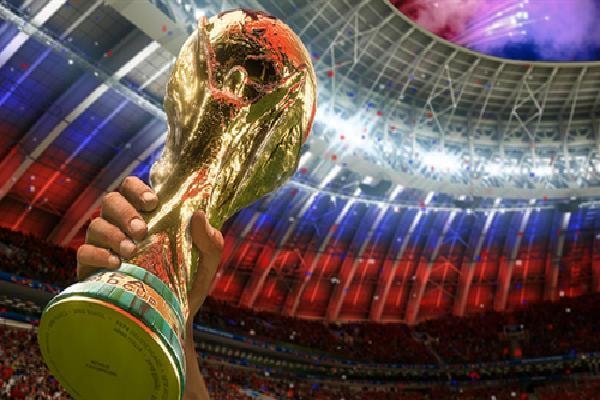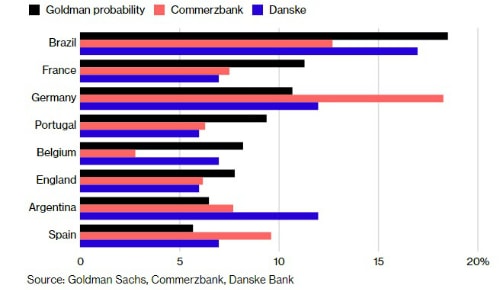Banks predict Brazil will win the 2018 World Cup
Using artificial intelligence (AI), leading banks such as Goldman Sachs, Commerzbank, Danske... compete to predict the World Cup champion.
 |
Goldman Sachs predicts that the "Samba dancers" will lift the championship trophy for the 6th time in Russia on July 15. This prediction result of Goldman Sachs is based on a combination of data mining, machine learning and econometrics methods.
Specifically, the bank used 200,000 statistical models, sifted through individual player data, recent team performance, and ran a million simulations for the tournament. The result was that Brazil would narrowly beat Germany in the final, with the algorithm returning a score of 1.70 - 1.41.
"We fed data from each team, each player, and recent team performance into four different machine learning models to analyze the number of goals scored in each match. The models then figured out the relationship between teams and goals scored, using results from World Cup and European Cup matches since 2005. By rotating the combinations of variables, we found the teams that were most likely to succeed. We then used these models to predict the outcome of the encounters, and used the unrounded results to find the winner,"Goldman Sachs describes the method.
The problem is, Goldman Sachs predicted Brazil would win 3-1 against Argentina in the final of the 2014 World Cup. However, in reality, the team stopped in the semi-finals before losing 7-1 to Germany.
|
World Cup winning probability prediction of 3 banks.Photo: Bloomberg |
Brazil and Germany are the most frequently featured teams in the banks' predictions. Danske Bank (Denmark) also predicts the South American team will win the trophy for a record sixth time, while Commerzbank believes Germany will mark their fifth title this season.
According to Goldman Sachs analysis, France had a slightly better chance of winning than Germany. However, this team had to stop in the semi-finals after facing Brazil.
Similar to Goldman Sachs, Danske alsouses combined variables and runs simulations to predict the champion team. At the same time, this bank also uses economic variables such asGDP per capita.Meanwhile, a study by the University of Innsbruck suggests Germany and Brazil will face off in the final.
UBS Bank (Switzerland) predicts that Germany, Brazil and Spain are most likely to win. Of these, Germany leads with a 24% chance of winning.
To get this result, UBS recorded the Elo rating of each team. Experts then performed simulation models called Monte Carlo. A large number of variables were combined to create 10,000 virtual matches and the results were statistically recorded.
Meanwhile, Dutch bank ING has a rather different and economical way of predicting. This bank uses the market value of the team (calculated from the transfer value of each player and FIFA ranking records) plus the recent performance of the teams.
As a result, Spain will be the champion because it has the highest value (1.04 billion euros). The team that has to leave after the final match is France (value reaches 1.03 billion euros).
Nomura Bank (Japan) also has a similar approach, with similar techniques when providing risk balance to investors. TheyApplying portfolio theory and the efficient market hypothesis to the World Cup.
The input data is the value of each team's players, their motivation and their performance history.Finally, the bank predicts that France and Spain will meet in the final.
There is no forecast of Russia's success.GoldmanSachsCan't analyze any chance for the home team to get through the group stage. Same opinion,Commerzbank believes that home advantage will not help Russia advance further.


